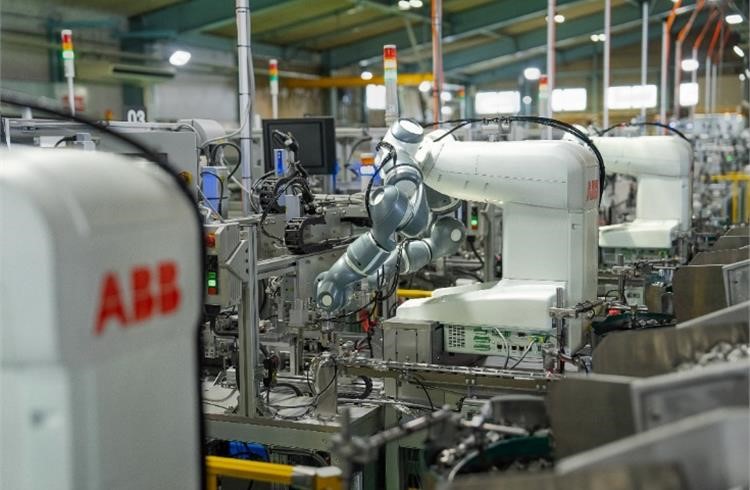

SUS Corporation, a prominent supplier of aluminium frames and die-cast components for the automotive and other manufacturing sectors, has been able to overcome workforce shortages and restore production with the help of ABB YuMi cobots (collaborative robots). As global supply chains continue to face major disruptions, SUS Corporation opted for domestic production in Shizuoka, Japan, to better manage lead times and introduce greater flexibility.

The Managing Director of ABB Robotics Automotive Business Line, Joerg Reger, asserted: "Reshoring is increasingly viewed as a way to address the challenges of disruptive supply chains and uncertainty, but it can introduce complexities of its own."
"Our range of flexible automation solutions can help resolve these, and we're delighted to see that SUS is benefiting from significant time-savings, enhanced production efficiency and the ability to quickly adapt to changing supply scenarios. This demonstrates how automation is no longer the preserve of large OEMs alone," Reger added.
However, the manual and repetitive nature of the production process, along with labour shortages, made it difficult for the company to employ sufficient workers to achieve the required production volumes. By deploying a series of YuMi dual-armed cobots, the company was able to reduce assembly time, increase productivity by 20%, and introduce much-needed flexibility. The cobots' seven axes of movement per arm were able to replicate the complex twisting actions needed during the assembly process.
The solution was developed using ABB's RobotStudio simulation software to design and optimize the operation in a virtual space before deployment in the real world. The software's accurate calculations for achievable production volumes made it easy for SUS to make informed decisions about its investment. The company expects to achieve payback on its investment within two years.
The Team Manager of the Die-casting Team at SUS Corporation's Shizuoka site, Akihiro Taki, commented: "The robots have taken on monotonous, repetitive jobs, enabling workers to be reassigned to more rewarding tasks such as operation management. The new system has also made it possible to operate at night with fewer workers, with the number of dedicated assembly machines in operation reduced from 11 to five."
Considering the findings of ABB's recent Automotive Manufacturing Outlook Survey, which revealed that labour shortages were one of the top three challenges for nearly a third (31%) of all respondents, while 35% ranked labour as their most concerning area when it came to rising costs, solutions like YuMi cobots are becoming increasingly relevant for the industry. SUS Corporation is now looking to implement more cells for other products and automate other processes to further streamline its operations.
Aluminium has extensive usage in the automobile and transportation sector because of its heat-resistant and lightweight properties. AL Circle has published a specially curated report on the same, please have a look at the Future of Aluminium in the Transportation sector.



Responses






